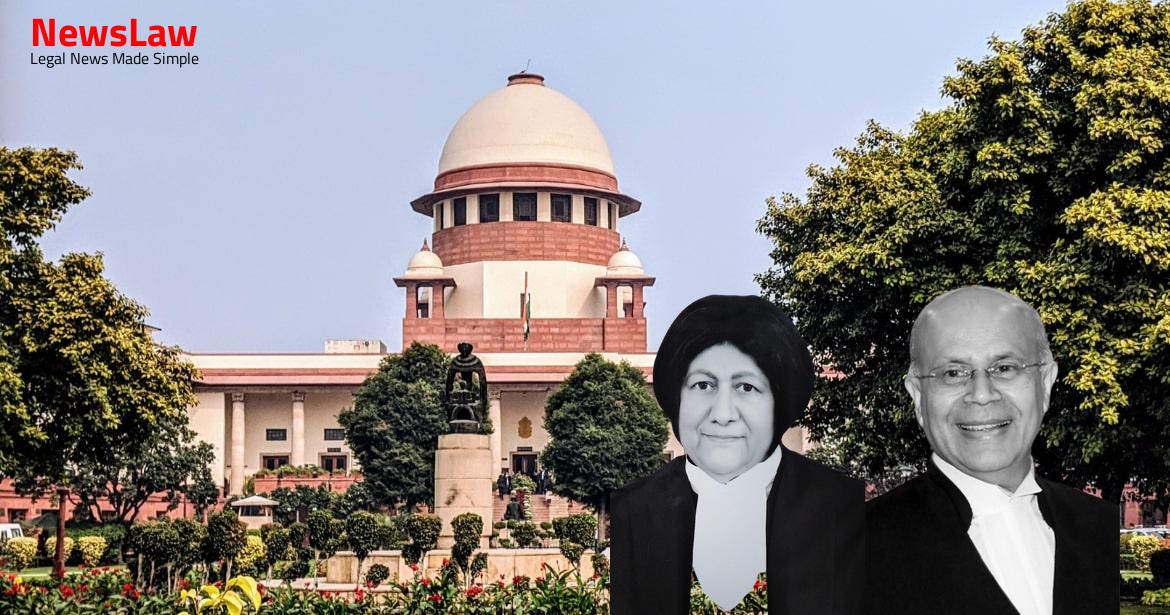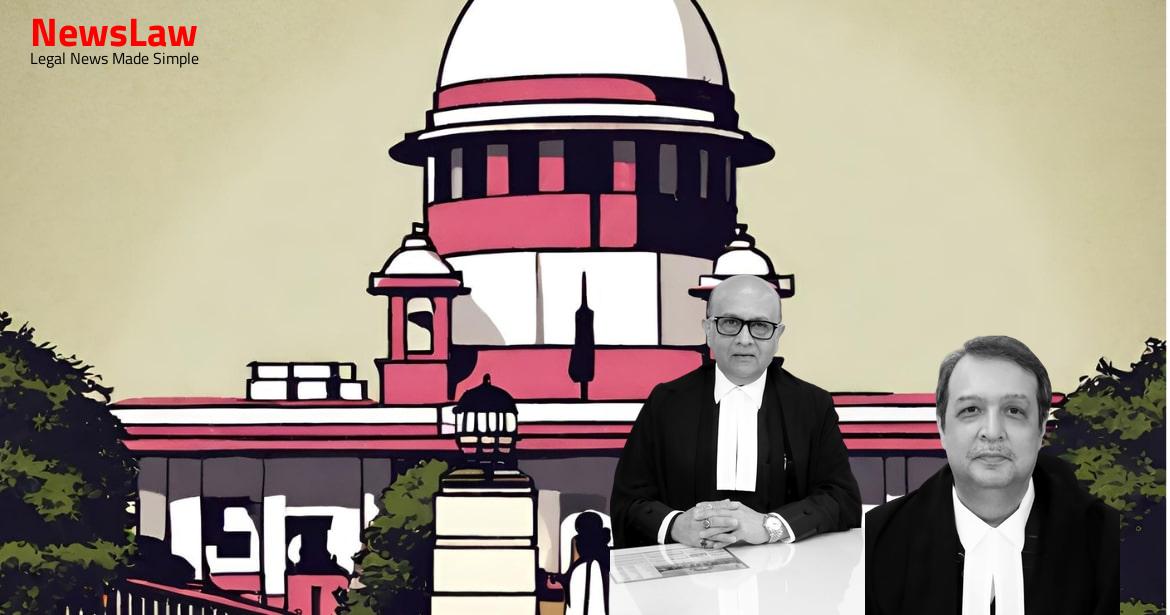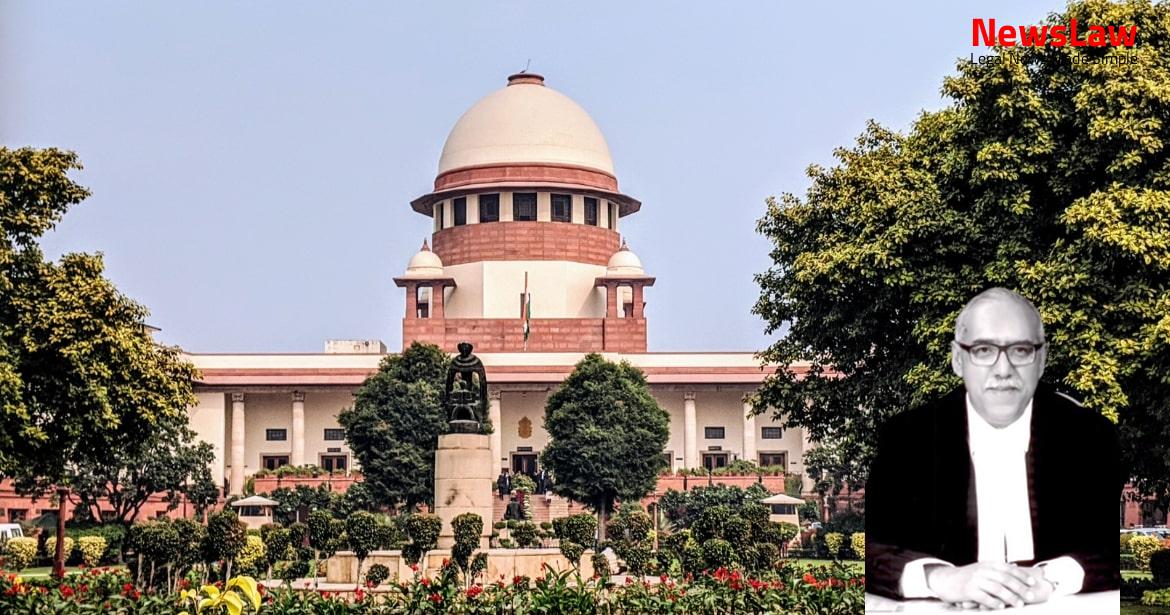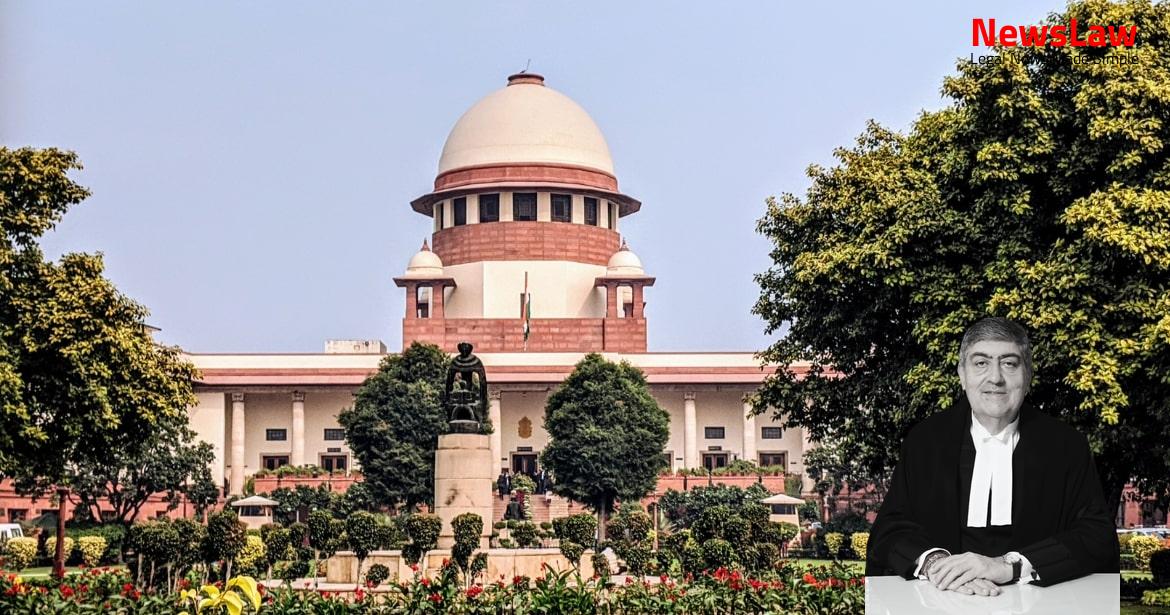Explore the intricacies of challenging an arbitration award and the critical role of the court’s legal analysis in this detailed summary. The case delves into the specific grounds on which arbitration awards can be challenged and the legislative intention to minimize court interference in such matters. Discover how the court’s analysis focused on upholding the provisions of the Arbitration & Conciliation Act, emphasizing the limited scope for challenging awards based purely on factual disagreement. #Arbitration #LegalAnalysis #CourtJudgment
Facts
- Leave granted to proceed with five claims totaling Rs. 2,08,59,989.
- The Executing Court proceeded with the execution of the Award as the 120-day period for challenging the Award had already expired by the date of its order.
- The Award in favor of the appellant was for a total amount of Rs. 1,38,44,430.
- The Award also included 15% pendente lite interest on Rs. 1,17,77,080 and costs totaling Rs. 2,67,350 without interest.
Also Read: Legal Analysis on Physical Ability in Rape Case
Arguments
- The Ld. Advocate of the petitioner challenges the finding of facts but does not establish that the impugned award is perverse due to misinterpretation of law or any other aspect.
- The respondent’s Advocate, Mr. Sidharth Luthra, pointed out deficiencies in the records and the Award that fall within the Section 34 petition criteria.
- The High Court’s decision to remand the matter and direct disposal within six months was supported by the respondent.
- Mr. Sidharth Luthra, learned Senior Advocate, made a fervent appeal to reduce the rate of interest.
- The rate of interest would be 18% after the four months from the date of the Award expired.
Also Read: Legal Analysis on Admissions and Document Consideration in Insolvency Case
Analysis
- The history of the case indicates multiple proceedings and challenges to the arbitration award.
- The arbitration award in question was made on 16.09.2009.
- The court emphasized minimal interference with the arbitration award per legislative intention.
- Challenges to the award must be based on specific grounds and factual issues cannot be re-litigated.
- The High Court’s interventions and remittances were based on the execution of the awarded amount.
- The award challenge in this instance arose after subsequent proceedings and interventions by the High Court.
- The initial Section 34 petition was dismissed due to exceeding the time frame, leading to a remand for a fresh hearing.
- The court cannot re-examine and reappraise the evidence considered by the arbitrator
- The conclusion reached by the arbitrator cannot be deemed as wrong
- An award cannot be challenged based on the arbitrator’s wrong conclusion or failure to properly appreciate facts and evidence
- Judicial authorities should not interfere, except as provided in the Arbitration & Conciliation Act
- The jurisdiction of the court in arbitration matters is restricted as per the Act
- The objective of the Arbitration & Conciliation Act is to minimize the role of courts in arbitration processes
- Challenges to awards can only be made under Sec. 34 of the Arbitration & Conciliation Act
- There is no evidence to doubt the integrity of the award or the arbitrator’s impartiality in deciding the contractor’s enhanced claim
- The High Court found reasons were not given for a remand, but the District Judge’s order had adequate reasons.
- The limitation point was not addressed or argued in the second round of hearing and was a glaring issue.
Also Read: Analysis of Transfer of Winding Up Proceedings to NCLT
Decision
- The impugned High Court judgment is set aside and the District Judge’s judgment is affirmed
- Interest rate of 18% is set aside in favor of 15%
- Respondent is required to pay interest at the rate of 15%
- A period of three months is granted to pay the balance amount under the Award
- The appeals are disposed of accordingly
Case Title: BBM ENTERPRISES Vs. THE STATE OF WEST BENGAL (2020 INSC 472)
Case Number: C.A. No.-002834-002834 / 2020



